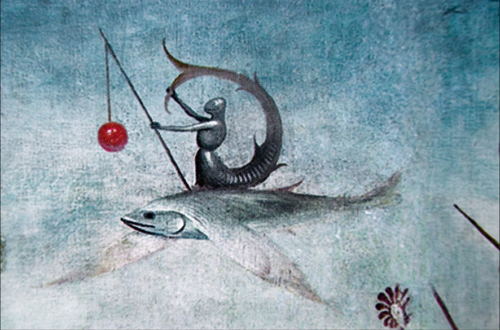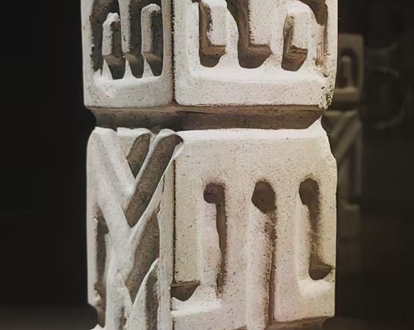May 12, 2023
Relational and Social Constructionist Consortium of Ecuador (IRYSE)
Diego Tapia Figueroa, Ph.D. y Maritza Crespo Balderrama, M.A.
We base ourselves for this series, on this thesis, from which we extract -adapting them- the proposals and invitations to a different relational position for the construction of the process of transformative therapeutic dialogue.
How are social constructionism and collaborative and dialogic practices useful for the relational co-construction of space for therapeutic training and supervision? Tapia Figueroa, Diego, Thesis (2018) for the Ph.D. with the Free University of Brussels (VUB) and the TAOS INSTITUTE of the United States.
«»What is necessary or critical for practice is always to keep in mind the importance of respect for the other person; be open to their differences, be aware of their local knowledge and invite and use it.»
Harlene Anderson (2017, personal communication)
Questions to reflect on the process, in a space of supervision, inter-vision, and co-vision:
●Identify three strengths of the group.
●Identify three strengths of yours.
●Identify three strengths of the facilitator.
●What do you take with you from this process, so far; what has been useful to you?
●What topics were a significant contribution to your different, creative, positive reflections: in your work and your personal, family life?
●What if we have a similar meeting in three years… what do you think would be similar and what would be different?
●Your suggestions and needs for upcoming meetings in this space
Suggestions: …….. …………..
Needs: ………… ………..
Feedback about what is done in each meeting is a permanent exercise in this relational research. This allows us to jointly configure the research methodology; responding to the specific needs of each participant; being congruent with what they are looking for; what is useful.
Something very valuable about these dialogues was that a new conversational culture was built, in which people feel they are creators of a different space, generators of alternatives for their action; a space for positive critical reflection on the processes of therapy and social work; and, in addition, a place for each one in which to learn from the strengths and nourish themselves with the resources of the other participants.
The responses of the participants are of great richness and depth and are like a choir that deploys its different voices and, at the same time, is capable of building its own music.
Asking means learning to open ourselves to listening to what is important. A process is promoted where conversations highlight creativity and curiosity to learn together, rescuing the pleasure of dialogue to generate alternatives and learn with others.
Seeing, each occasion, as an opportunity to put into play questions asked from this position of «not knowing» -proposes with enthusiasm- a way of conversing openly to seek other perspectives to understand the actions that the participants develop in their work and family contexts.
We speak with respect about all those issues that the participants (co-researchers) in this space see or consider «conflicts» between people and that, thanks to the different dialogues, begin to deconstruct themselves, to take on unforeseen meanings, to relationally construct something unthinkable.
The arrival of new professionals in each fortnightly meeting implies these specific challenges:
a) How to avoid the repetition and routine of the process, of what has already been worked on, for those who participated regularly without this implying fatigue and boredom?
(b) How to welcome newcomers with respect, making them feel comfortable, safe, and confident?
c) Could consistency, seriousness, and commitment be guaranteed with this incessant coming and going of itinerant technicians and professionals?
d) What needed to be guaranteed theoretically and practically in each meeting, beyond the «new faces and new voices» and the «old» presences?
To respond to these real difficulties, efforts are made to listen to differences and include them in the conversational process. This is feasible because we maintain a constant level of reflection on what is going to happen in this space. Each time, the participants, as already described, were invited to propose current generating questions, according to their circumstances, needs, contexts, and cultural realities; and on these issues, the conversations unfolded. Each time it means a different process, with a base of dialogue creating alternatives and useful possibilities for the professional praxis of those who are participating.
The result is that both for those who arrive for a single occasion or eventually, and for those who attend permanently, everyone sees after each meeting, with the feeling and the experiential experience of taking knowledge, resources, and new and positive strengths for their personal, family and professional life.
The same relational process generates something qualitatively new, and this is possible because it responds to what the participants expected and needed -guided by utility- that is, the practical way in which the reflections that arise can be applied and have genuine relevance to be put into practice.
The interpretation of this process means opening a space for the questions that generate the practice while enriching it.
Questions such as: what are the professional consequences of having a certain therapeutic position and working from it? what is the usefulness of these perspectives to renew professional praxis? They become fundamental and allow us to understand that social constructionism and collaborative and dialogic/generative practices are an invitation to a critical stance that involves curiosity about the different ways in which we can relate to the world and be creative.
Generating words, significant relational transformations.
«The most important aspect of human relationships starts from one’s own being.»
Harlene Anderson (1999, p. 37)
In addition to those already included in previous sections, it is interesting to be able to open a space that allows us to make visible other contributions and voices that account for how transformative reflections and relationships were established, not exempt from difficulties, power struggles, contradictions, and challenges.
From the questions posed, conversations are opened seeking that participants mobilize their relational resources, in a creative and active process. For example, a question that can be useful: how to embrace these ideas and not see them as techniques, as something instrumental, or as something strategic; how is that going to be expressed relationally and how can this be translated into social practice? How is this philosophy of social constructionism -if it reaches me- going to be embodied in my social practice? And, each person will respond according to his style, his being, his own needs.
Process questions that elicit thoughtful responses from participants:
What do you expect, what would you like to happen today in this space?
What would you like to happen in our conversations, to make them useful to you and to serve you in your work?
What will you contribute differently, how are you going to contribute so that on this day what you would like happens?
What do you hope to take from here, at the end of this meeting today?
How will you work together with this team to make what you need to happen?
Do we care, are we passionate about it, do we like and enjoy the work we do?
What is different for you, what does this collaborative learning space bring you that you did not have before; what do you rescue as the most significant?
What questions are you asking in your joint reflections, and what do they have in their professional practice?
The process is approached with the co-researchers, respecting the moments in which they meet, choosing the type of questions, and adapting the dialogues to what their interests and needs require; learning from them and collecting what -in their practice of accompanying the families- they were experiencing and applying what they learned in the supervision meetings.
The fact that the people on the team live the experience (dialogue) of feeling appreciated, recognized, accepted, respected, and valued constitutes one of the most important achievements of this collaborative space. Their capacities and advances deserve to be known (and everyone can make their voice freely and openly heard, which is legitimized by the whole), and thus, resources are mobilized among all, and solidarity is promoted and encouraged.
It is important for us to coordinate energies and social wills to capitalize on the resources that we are discovering and creating in these meetings so that the experience of dialogue, sharing, and commitment produces new sensations, different connections, and unprecedented relationships that contribute to innovate the work process: with families and communities, in which we participate.
Processes to innovate and open possibilities emphasizing, each time, as if it were the first time: resources, capacities, achievements, positive aspects, and successful experiences that were shared in groups and plenary. That they seek participation which means inclusion, responsible relationship, and social commitment to solve the important issues of people’s lives, to transform negative contexts and generate new ones; those that contribute to creating welfare and social justice.
It is positive to see how each participant tries to find some pragmatic use for these meetings and decides to share with those present their perspectives, points of view, ideas, interpretations, and experiences. It is particularly enriching to see how an internal and social process of questioning, of asking questions, of questioning the process of joint construction of new meanings, moves
SUGGESTED BILBIOGRAPHY
Anderson, H. (1999). Conversation, language, and possibilities. A postmodern approach to therapy. Buenos Aires, Argentina, Editorial Amorrortu.
Fried Schnitman, D. (Ed.) (2017), Dialogues for transformation: project development and generative research oriented to the construction of futures in Ibero-America – Volume 3. Ohio, USA: Ed. A Taos Institute Publication. WorlShare Books.
Gergen, K (2016). The Relational Being. Beyond the Self and the Community. Bilbao, Spain: Editorial Desclée de Brouwer, S.A.
IRYSE (2018) Blog of the Relational and Socioconstructionist Institute of Ecuador (IRYSE): https://iryse.org/
McNamee, S. (2013). The social poetry of research committed to the relationship. Research as a conversation. In Deissler, K. & McNamee, S. (Ed) Filo and Sofia in dialogue: the social poetry of therapeutic conversation (pp. 102-109). Ohio, USA: Ed. Taos Institute Publication.
Tapia Figueroa, Diego, Thesis (2018) for the Ph.D. with the Free University of Brussels (VUB) and the TAOS INSTITUTE of the USA.

English translation of Bruno Tapia Naranjo



